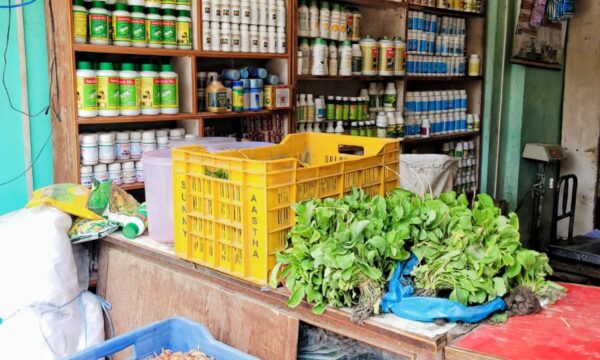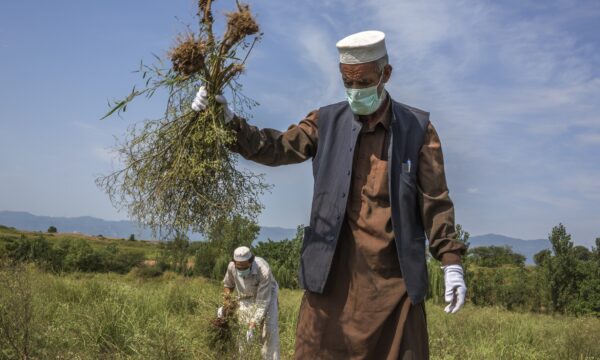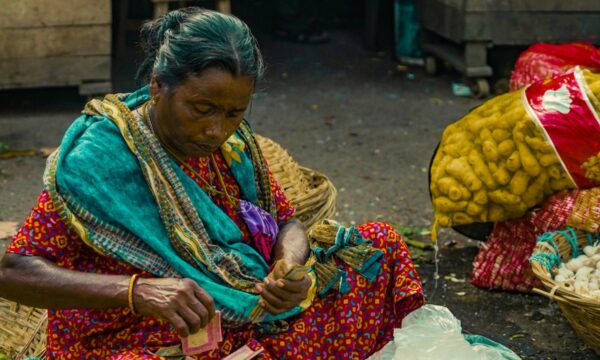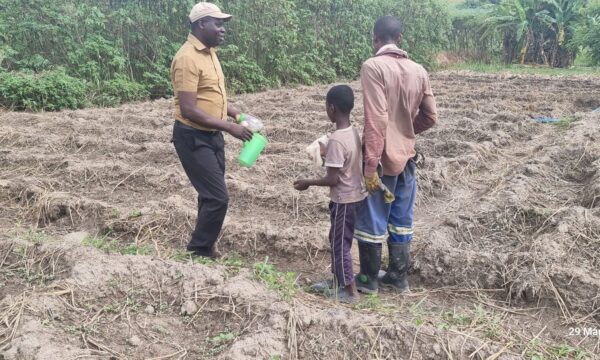Agriculture is the backbone of Pakistan’s economy. However, many farmers lack access to crucial knowledge about sustainable practices. This is especially true for women. While women form around 66% of the agricultural workforce in Pakistan, they receive a fraction of the extension advice. This poses a challenge when it comes to pesticide risk reduction. In Pakistan, chemical pesticide use has increased by over 1,100% in 20 years. Chemical products can severely impact farmers’ health. Women are at risk because they undertake manual labour, such as planting and weeding. Often, they are in contact with pesticide residues on crops.
PlantwisePlus and its partners are helping to address this challenge. Venturing into new territory, the programme has taken an innovative approach to knowledge sharing through street theatre. PlantwisePlus is now using this art medium to share various types of information. Firstly, it is delivering knowledge about pesticide risk reduction. Secondly, it is sharing messages about lower-risk pesticide alternatives. Finally, it is raising awareness about gender equality in agriculture. Street theatre is an impactful way to directly reach the country’s smallholders. While not new to Pakistan, it is a novel form of knowledge-sharing. PlantwisePlus is now shining a spotlight on sustainable agriculture in rural communities.
The knowledge-sharing benefits of street theatre
Across the globe, performing arts are used to share knowledge. Street theatre, in particular, has many benefits. Firstly, it captures people’s attention. Its novelty means people watch and listen. Secondly, it conveys scientific information in a digestible way. This includes advice about pesticide risk reduction. Not all media can achieve this. Street theatre overcomes barriers such as low literacy, for example. Finally, it shares information in a contextual way. It presents new information in the framework of day-to-day life. In this way, it can be used as a tool for behavioural and social change. All of these benefits make street theatre an effective tool.
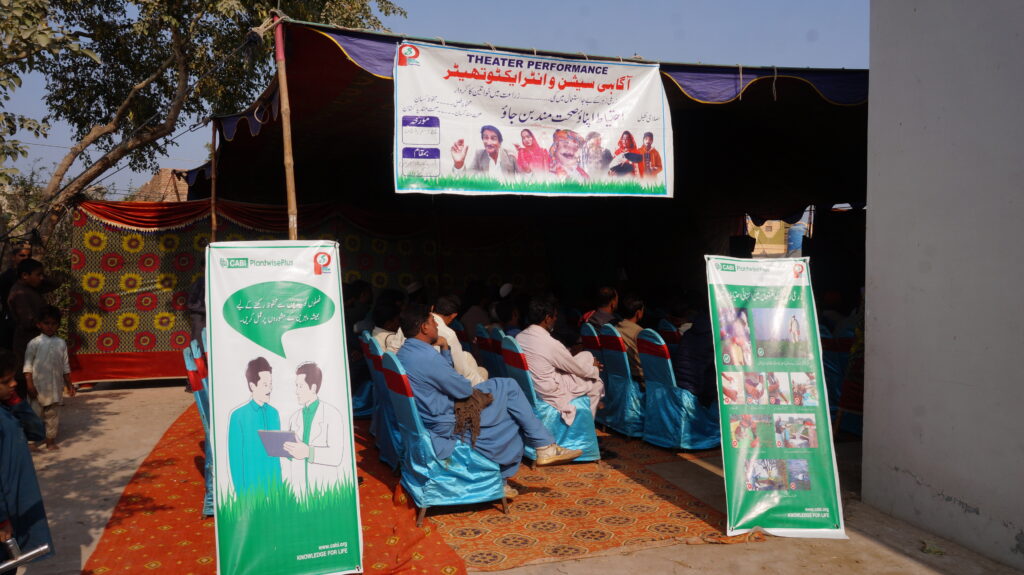
PlantwisePlus aims to empower smallholder farmers. It supports smallholders in producing food using sustainable practices. Awareness raising through street theatre supports these aims. Specifically, it aligns with the programme’s pesticide risk reduction pathway. It also supports the PlantwisePlus farmer advisory role, with gender as a cross-cutting theme.
Choosing the right location for street theatre
Street theatre offers farmers a unique learning opportunity. From gender equality to pesticide risk reduction, the performances deliver all kinds of new information. PlantwisePlus needed to select locations where it could share this new knowledge. It based the selection on several guiding principles:
a) Villages that traditionally grow horticultural crops like tomatoes
b) Remote rural communities not yet reached with pesticide risk reduction messages
c) Places where women make up a large portion of the agricultural workforce
Raising awareness about beneficial insects for pest control
The decisions were also driven by plant clinic locations and the promotion of a Trichogramma rearing facility (TRF). Located in Muzaffargarh, the TRF was created in collaboration with local partners. It produces and distributes Trichogramma cards to farmers. Trichogramma is a parasitic wasp that feeds off crop pests like tomato pinworm. The TRF rears the wasps and loads the insects’ eggs onto cards. The cards are then carefully placed in crops. When the wasps hatch, they feed off the crop pests, controlling them. This reduces damage to crops. The TRF was established as a pilot facility in Pakistan. In time, the facility may expand.
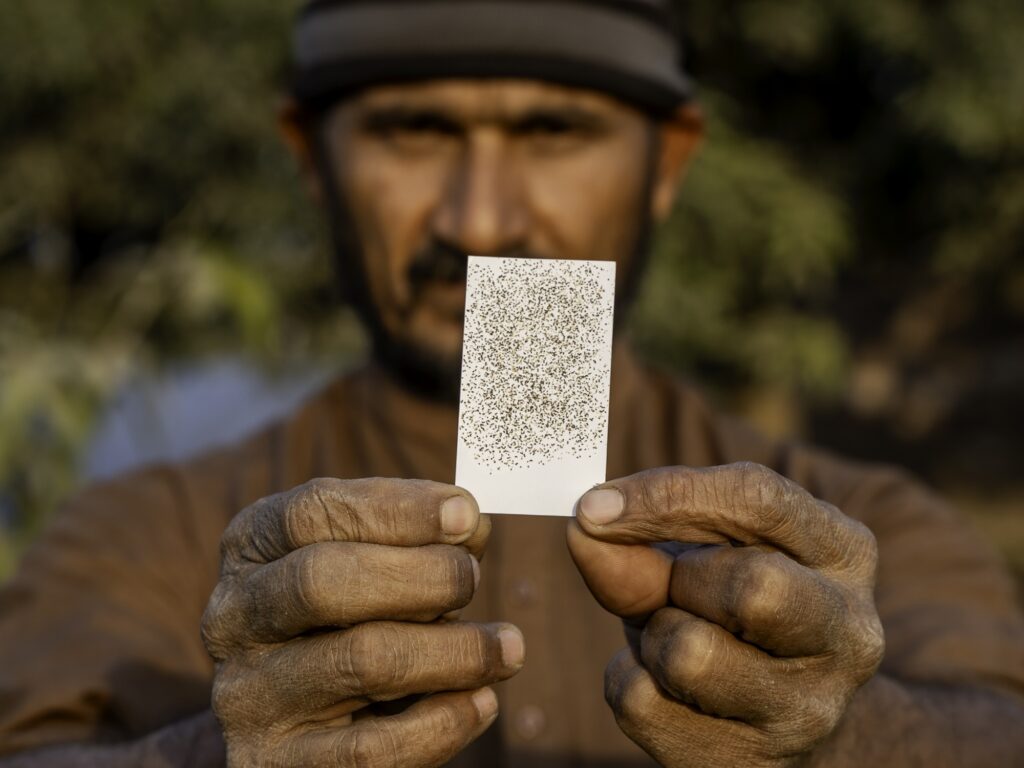
Building trust and breaking through gender barriers
Building trust within the selected rural communities was a critical part of the initiative. Convincing villages to allow women to attend the theatre was, initially, a major challenge. However, it was overcome with sustained interaction and by engaging with community elders. The selection of an implementing partner also helped to open doors. In this case, the partner was especially familiar with cultural sensitivities and the local language. Over time, traditionally conservative communities warmed to the idea of street theatre.
Curtains up – what does street theatre for sustainable farming look like?
PlantwisePlus worked in close cooperation with Saim Productions, which specializes in street theatre. Together, they developed a script. The dialogue communicated key messages. It covered the impact of pesticides on humans, animals and the environment. It also communicated alternatives to pesticides. Moreover, it shared the economic benefits that women farmers bring to agriculture.
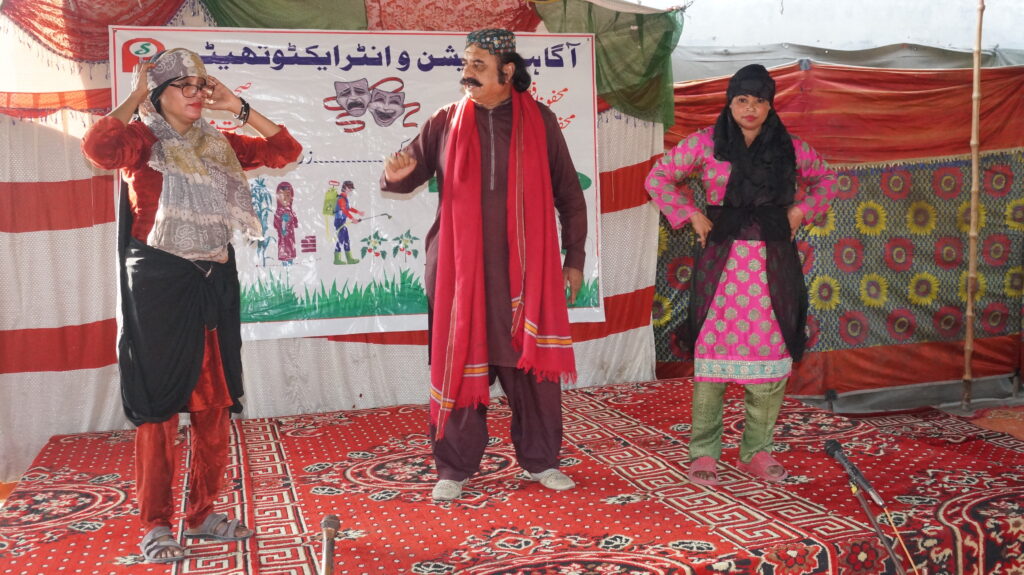
Setting up stage in the middle of villages, the street theatre gathered attention. The venues were created with separate spaces for men and women. They were decorated with visual materials highlighting the key messages. Riaz Ahmad of Saim Production led the performances. Together with colleagues, he acted out the scripts in front of crowds in a role-playing style. Messages were delivered in a simple way, using local language. The actors spoke about risky pesticide behaviours. They discussed what farmers can do to reduce them. This included, for example, how to use protective personal equipment (PPE).
The performances were staged across 20 villages. Each performance lasted for over an hour, and over 100 people attended each performance. At one performance, 115 people visited, 60 of whom were women. The organizers noted how the women farmers keenly followed the performances and scripts. By the end of 2024, PlantwisePlus and its partners had delivered all of the performances – 10 each in Multan and Muzaffargarh.
Read more
Trichogramma mass rearing facilities piloted in Pakistan
CABI calls for gender equality for rural women in Pakistan
PlantwisePlus gratefully acknowledges the financial support of the Directorate-General for International Cooperation, Netherlands (DGIS); European Commission Directorate General for International Partnerships (INTPA); UK International Development from the UK government; and the Swiss Agency for Development and Cooperation (SDC).
Related News & Blogs
PlantwisePlus develops agro-input dealer training scheme with Bangladesh government
Pest outbreaks in Bangladesh are causing a rapid increase in the sale of pesticides. Farmers are turning to chemical products such as fungicides, herbicides and insecticides to manage pests, which they often buy from their local agro-input dealer. Howe…
22 January 2026

